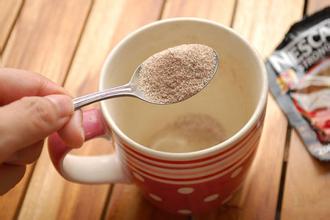Children's poor grades have something to do with coffee?
Now we all know coffee is a good thing, but people used to think differently. Let's look back at centuries of endless debate over coffee.
16th century: Coffee can make people excited. Legend has it that a shepherd named Kaldi in Ethiopia discovered that his sheep would suddenly get excited after eating a kind of oily green leaves and red berries. He personally experimented with the plant, which we know today as coffee.
17th century: Coffee can cure alcoholism. Especially in England, where alcoholism is rife, it is seen as a cure for alcoholism. A 1652 article claimed that coffee could aid digestion, relieve and cure gout and scurvy, relieve coughs, headaches and stomachaches, and even prevent miscarriages.
18th century: Coffee makes people work long hours. In London in 1730 tea replaced coffee as the daily drink. The American colonists had a preference for tea until the Boston Tea Party of 1773 characterized it as an "unpatriotic act." But since the tea incident, coffee shops have grown in number. The apparent pick-me-up effect led to the belief that drinking coffee would keep colonists working longer.
1927: Coffee is the cause of poor grades among children. In 1927, a scientific journal published a survey involving 80,000 elementary and middle school students. The researchers were "shocked" to announce that children who drank more than one cup of coffee a day performed poorly academically.
(Excerpt from Hu Yiren, author of The Paper)

Important Notice :
前街咖啡 FrontStreet Coffee has moved to new addredd:
FrontStreet Coffee Address: 315,Donghua East Road,GuangZhou
Tel:020 38364473
- Prev

Comparison between instant coffee and freshly ground coffee: the three-in-one calorie is 20 times that of ground coffee.
You can't just drink coffee quickly, conveniently and cheaply. Three-in-one coffee contains a variety of artificial additives, which has reached six-in-one and seven-in-one. Sugar-free two-in-one, which you think is healthier, actually contains high fat, and it is even more unhealthy to eat. The calorie of three-in-one coffee is 20 times that of filter-hanging ground coffee. Do you really want to drink three-in-one and two-in-one? The convenience of three-in-one instant coffee is improved
- Next

ZOO COFFEE is the first star-rated hotel quality coffee bean in China.
ZOO COFFEE (Zoo Coffee), a coffee chain of ZOO HOLDINGS Group (Jin Jianyou, chairman of ZOO HOLDINGS GROUP), has partnered with MILAN GOLD (Beijing Golden Milan Coffee Co., Ltd.) to launch the ALL COFFEE NATIONS 33 series of products. From then on, ZOO COFFEE consumers will be able to enjoy
Related
- What grade does Jamaica Blue Mountain No. 1 coffee belong to and how to drink it better? What is the highest grade of Blue Mountain coffee for coffee aristocrats?
- What are the flavor characteristics of the world-famous coffee Blue Mountain No. 1 Golden Mantelin? What are the characteristics of deep-roasted bitter coffee?
- Can I make coffee a second time in an Italian hand-brewed mocha pot? Why can't coffee be brewed several times like tea leaves?
- Hand-brewed coffee flows with a knife and a tornado. How to brew it? What is the proportion of grinding water and water temperature divided into?
- What is the difference between Indonesian Sumatra Mantinin coffee and gold Mantinin? How to distinguish between real and fake golden Mantelin coffee?
- What does bypass mean in coffee? Why can hand-brewed coffee and water make it better?
- Unexpected! Ruixing Telunsu lattes use a smoothie machine to foam milk?!
- % Arabia's first store in Henan opens into the village?! Netizen: Thought it was P's
- Does an authentic standard mocha coffee recipe use chocolate sauce or powder? Mocha Latte/Dirty Coffee/Salty Mocha Coffee Recipe Share!
- What is the difference between Vietnam egg coffee and Norway egg coffee? Hand-brewed single product coffee filter paper filter cloth filter flat solution!

